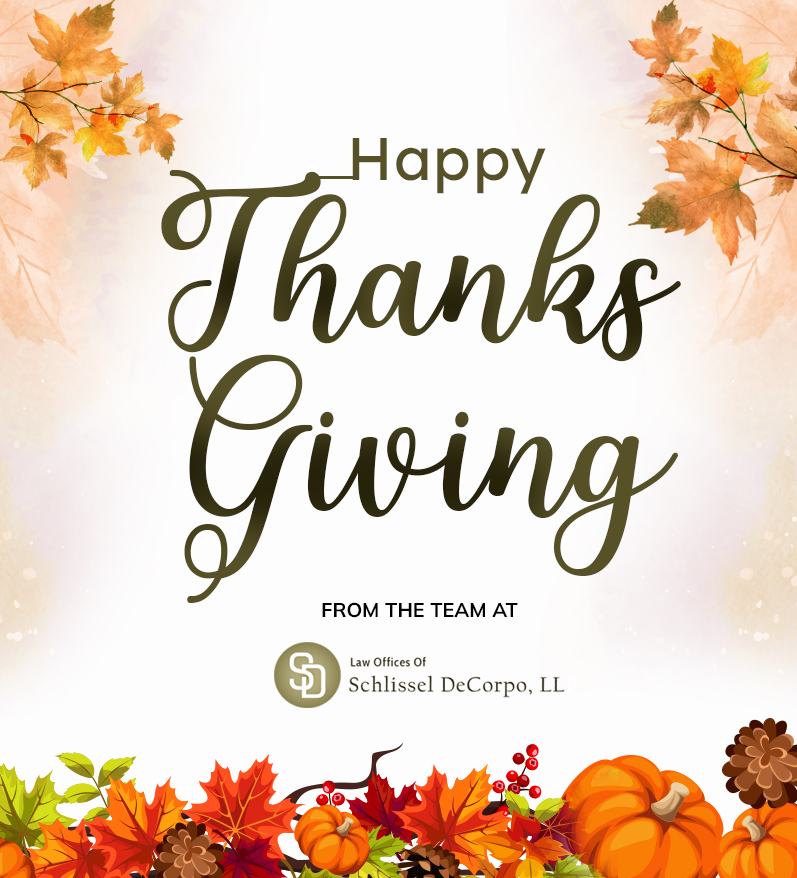Foreclosures and Settlement Conference Requirements in New York
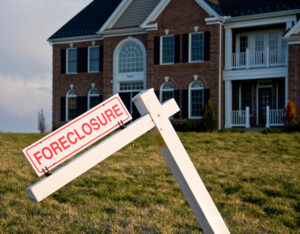 The State of New York has a law which states in all foreclosure cases regarding residential homes that have less than 5 families in them and serves as the principal place of residence of the borrower a “settlement conference” is required to be held. At the settlement conference there will be court attorney referee or a judge which presides over the conference. The specific purpose of the conference is to determine whether the homeowner is qualified to obtain a modification of the mortgage, or is there another way the homeowners can save their home from being sold in a foreclosure sale.
The State of New York has a law which states in all foreclosure cases regarding residential homes that have less than 5 families in them and serves as the principal place of residence of the borrower a “settlement conference” is required to be held. At the settlement conference there will be court attorney referee or a judge which presides over the conference. The specific purpose of the conference is to determine whether the homeowner is qualified to obtain a modification of the mortgage, or is there another way the homeowners can save their home from being sold in a foreclosure sale.
At the foreclosure settlement conference a schedule is set up whereby the homeowner has to comply with the mortgage modification application process. This includes submitting an application in a form provided by the lender, following up to provide documentation of financial circumstances and credit worthiness of the homeowner. In circumstances where the homeowner qualifies for the modification of the mortgage there will usually be a period of 3 or 6 months regarding trial payments. The borrower/homeowner must make these trial payments in a timely manner.
Failing to Qualify for a Mortgage Modification
In cases where the homeowner fails to qualify to obtain a mortgage modification, the court attorney referee or judge will issue an order releasing the case to a trial part for further litigation action regarding the foreclosure. Usually after the case is released to a trial part the attorneys for the financial institution will bring a motion for summary judgment against the homeowner. In many situations this amounts to a trial on paper whereby the financial institution’s attorneys provide documentation of the homeowner’s default in making payments on the mortgage. The financial institution’s attorneys will request that a special referee be appointed to compute damages as to how much the homeowner owes to the financial institution and to eventually sell the property at a foreclosure auction sale. If the homeowner is represented by an attorney, the attorney for the homeowner will submit opposition papers to this application by the financial institution for summary judgment foreclosure and sale. If the homeowner’s attorney has included counterclaims or affirmative defenses in the foreclosure answer, the attorney at this time can cross move to dismiss the case based on the counterclaims or affirmative defenses.
In cases where a homeowner and their attorney has been successful in opposing the summary judgment motion, the Judge handling the case will eventually schedule the case for a trial.
 The law office of Schlissel DeCorpo have been defending homeowners regarding mortgage issues for more than three decades. They can be reached at 516-561-6645, 718-350-2802, 631-319-8262 and 914-998-0080 or emailed at Elliot@sdnylaw.com.
The law office of Schlissel DeCorpo have been defending homeowners regarding mortgage issues for more than three decades. They can be reached at 516-561-6645, 718-350-2802, 631-319-8262 and 914-998-0080 or emailed at Elliot@sdnylaw.com.
Dealing with a Foreclosure
 Life is not static. A families financial situations can change related to loss of employment, downsizing employment, financial tragedies, health issues, marital problems and many other issues. When a family falls behind on their mortgage payments it is important they do not ignore the issue. Immediate action should be taken to deal with the potential of a foreclosure and the loss the family’s most valuable asset, their home.
Life is not static. A families financial situations can change related to loss of employment, downsizing employment, financial tragedies, health issues, marital problems and many other issues. When a family falls behind on their mortgage payments it is important they do not ignore the issue. Immediate action should be taken to deal with the potential of a foreclosure and the loss the family’s most valuable asset, their home.
Lenders Action
A financial institution can take legal action when a homeowner falls 2 or 3 months behind in making their mortgage payments. The homeowner will usually receive initially a 90 day notice that their home is going into foreclosure. Thereafter, they will receive a Summons and Complaint from the attorneys from the financial institution outlining the reasons for the foreclosure and they are seeking to remove families ownership of their home and take back the home.
The Foreclosure Process
The foreclosure process in the State of New York is not something a homeowner can navigate or deal with on their own. The best way to deal with the foreclosure process is an early intervention on behalf of the homeowner by a dedicated, experienced foreclosure law firm.
The law office of Schlissel DeCorpo LLP has been representing homeowners for more than 30 years and has helped hundreds of homeowners keep their homes.
 The law office of Schlissel DeCorpo have been defending homeowners regarding mortgage issues for more than three decades. They can be reached at 516-561-6645, 718-350-2802, 631-319-8262 and 914-998-0080 or emailed at Elliot@sdnylaw.com.
The law office of Schlissel DeCorpo have been defending homeowners regarding mortgage issues for more than three decades. They can be reached at 516-561-6645, 718-350-2802, 631-319-8262 and 914-998-0080 or emailed at Elliot@sdnylaw.com.
Foreclosure, What Does It Mean? – Part 2
The Homeowner’s Response
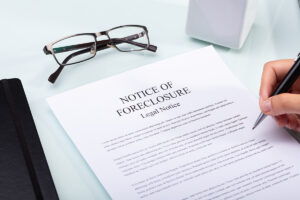 Upon being served with the summons and complaint, regarding notice of the foreclosure lawsuit, in the event you wish to keep your home and contest the foreclosure lawsuit, you need to file a verified answer. This is a response to the summons and complaint, and it will outline any defenses you have to the lawsuit. Be advised if you do not file an answer or you simply fail to respond the court will rule in the case that you have defaulted and the lawsuit will go faster and you’ll lose your home more quickly.
Upon being served with the summons and complaint, regarding notice of the foreclosure lawsuit, in the event you wish to keep your home and contest the foreclosure lawsuit, you need to file a verified answer. This is a response to the summons and complaint, and it will outline any defenses you have to the lawsuit. Be advised if you do not file an answer or you simply fail to respond the court will rule in the case that you have defaulted and the lawsuit will go faster and you’ll lose your home more quickly.
Foreclosure Settlement Conference
Usually within 60 days after your lender initiates the foreclosure lawsuit the Supreme Court in the county where the house is located will schedule a legally mandated foreclosure settlement conference. The purpose of this conference is to see if there’s a way to resolve the foreclosure lawsuit without the homeowners being forced from their home. At the foreclosure settlement conference, issues such as mortgage modifications, forbearance agreements, short sales and other issues will be discussed.
The Discovery Phase
If you put submit a written answer in the foreclosure lawsuit and you contest it, a period begins called the discovery phase of lawsuit. During this time, both you and your lender can request pertinent information and documents from the other side to prepare your respective arguments during motion practice or trial.
Motion For Summary Judgment
In most cases, the financial institution will file a motion for summary judgment. This is a motion by the bank’s lawyers, which asks the court to issue a judgment of foreclosure based solely on the evidence presented in writing. They will claim a trial is not necessary because the case is so one sided. For a homeowner to be successful in defeating the motion for summary judgment, the homeowner simply needs to show there is some issue that should be dealt with at trial. Any issue which is not 100% clearly in the bank’s favor will be the basis for the for the judge to deny the bank’s application for summary judgment motion.
Judgment of Foreclosure and Sale
If the judge rules on the summary judgment motion in favor of the bank, the Court will issue a final judgment of foreclosure and sale and an order to auction off your home. If there is an auction order given, a referee will be appointed, who will sell your home on the Supreme Court steps or in a courtroom in the Supreme Court on rainy days.
Can I Stop A Foreclosure From Moving Forward?
Yes! There are numerous defenses, affirmative defenses, counterclaims and other legal actions which can be taken to stop foreclosures from moving forward and tie up the case in court from three to seven years. The banks have experienced law firms representing them. The best way to you protect your investment in your home and your ability to continue to live in your home with your family is to hire an experienced foreclosure attorney.
 The law office of Schlissel DeCorpo have been defending homeowners regarding mortgage issues for more than three decades. They can be reached at 516-561-6645, 718-350-2802, 631-319-8262 and 914-998-0080 or emailed at Elliot@sdnylaw.com.
The law office of Schlissel DeCorpo have been defending homeowners regarding mortgage issues for more than three decades. They can be reached at 516-561-6645, 718-350-2802, 631-319-8262 and 914-998-0080 or emailed at Elliot@sdnylaw.com.
Foreclosure, What Does It Mean? – Part 1
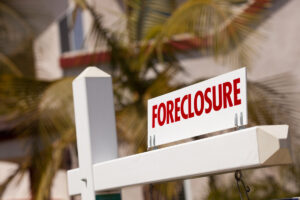 Foreclosure is the initiation of a lawsuit for the rights to ownership of the property. It seeks to remove from the owners from living in the property and having the property sold at auction to satisfy an unpaid mortgage on the property. The foreclosure process can be initiated by the financial institution’s attorneys as they have a vested interest home which has been used as collateral for the loans.
Foreclosure is the initiation of a lawsuit for the rights to ownership of the property. It seeks to remove from the owners from living in the property and having the property sold at auction to satisfy an unpaid mortgage on the property. The foreclosure process can be initiated by the financial institution’s attorneys as they have a vested interest home which has been used as collateral for the loans.
Start Of The Foreclosure Process
The foreclosure process begins after the homeowner’s default, which technically occurs when they have missed mortgage payments on their home mortgage loan. The number of payments a homeowner can miss before a default notice is sent depends on the financial institution and its policies with regard to defaulted loans. Generally speaking, if you are three months behind on your mortgage payments, your house can be placed into foreclosure.
Missing a Payment – What Should You Do?
If you miss one payment your mortgage company will generally allow you a grace period of up to 15 days during which time you can pay that amount due and avoid late charges. If you do not remit your payment by the end of the grace period, your lender may try to contact you and remind you you’ve missed your payment and advise you that you now owe late fees in addition to your payment. If you get one of those late payment letters it is suggested you contact your financial institution and make arrangements to catch up on your mortgage payment.
What If You Can’t Make Your Mortgage Payments?
If you miss one or more mortgage payments and you do not have the financial capability of catching up on your mortgage payments, you can take action to avoid going into foreclosure or into a pre-foreclosure situation. There are plans such as forbearance agreements, mortgage modifications and other programs which financial institutions have to assist homeowners who have incurred their financial difficulties.
The Start of the Foreclosure Process In New York
Here’s how the foreclosure process in New York works. The financial institution which holds the mortgage on the home hires a law firm. The law firm drafts the summons and complaint. The summons and complaint is filed in the county clerk’s office of the Supreme Court in the county where the property lies. The lender, after filing the summons and complaint, also files a document called a “Lis Pendens”. This is a public notice legal action has been taken regarding your home and this puts everyone on notice that there is a problem with the title to your home and you no longer have good title to the house. Thereafter the lawyers for the financial institution, higher a process server to go to your home and serve you with a copy of the summons and complaint in the foreclosure lawsuit.
 The law office of Schlissel DeCorpo have been defending homeowners regarding mortgage issues for more than three decades. They can be reached at 516-561-6645, 718-350-2802, 631-319-8262 and 914-998-0080 or emailed at Elliot@sdnylaw.com.
The law office of Schlissel DeCorpo have been defending homeowners regarding mortgage issues for more than three decades. They can be reached at 516-561-6645, 718-350-2802, 631-319-8262 and 914-998-0080 or emailed at Elliot@sdnylaw.com.
Reverse Mortgages For Co-ops
 On May 20, 2022 a new law went into effect in New York State which allows owners of co-ops to apply for reverse mortgages. Up until the time this statute went into effect, seniors who wanted to obtain a reverse mortgage on their co-op apartments, were unable to do so. The reason for this is that co-ops are not real property under the law in New York State. The owners of a co-op have a personal property interest in the shares of the cooperative apartment corporation.
On May 20, 2022 a new law went into effect in New York State which allows owners of co-ops to apply for reverse mortgages. Up until the time this statute went into effect, seniors who wanted to obtain a reverse mortgage on their co-op apartments, were unable to do so. The reason for this is that co-ops are not real property under the law in New York State. The owners of a co-op have a personal property interest in the shares of the cooperative apartment corporation.
Co-Op Mortgages and How They Work
In a regular mortgage the borrower receives a loan and immediately starts making scheduled monthly payments. In a usual reverse mortgage on a home, the borrower, ages 62 or older, resides in the home and if it is their primary residence, they can and apply for a reverse mortgage.
The borrower receives loan proceeds, but the repayment on the loan is deferred until the borrower’s death, sale of the of the property or when the borrower permanently relocates out of the property, or defaults on other terms of the loan. The reverse mortgage loan is secured by the home occupied by the borrower as their primary residence.
A Reverse Cooperative Apartment Loan
A reverse mortgage for a Co-op is called a reverse cooperative apartment loan. In this case, the borrower age 62 or older can apply for the reverse mortgage. The apartment must be the primary residence of the borrower. Every year on the anniversary date of the loan the borrower must recertify that he or she is still living in
this apartment. In any situation where the homeowner is out of the apartment for a period of 12 months or more due to physical ailment or illness, it no longer qualifies as his or her primary residence.
The Loan Proceeds
There are several ways the borrower on a reverse mortgage can receive the proceeds of the reverse mortgage. He or she can receive it in equal monthly payments. They can receive it in a fixed number of payments. They can have a line of credit option where they can remove the proceeds up to the amount of the loan.
In Co-op reverse mortgage cases, the Co-op board of Directors must approve the reverse cooperative apartment unit loan. It is unknown how boards of directors of co-ops will respond to applications to allow homeowners withdraw the equity from their homes.
 The law office of Schlissel DeCorpo have been defending homeowners regarding mortgage issues for more than three decades. They can be reached at 516-561-6645, 718-350-2802, 631-319-8262 and 914-998-0080 or emailed at Elliot@sdnylaw.com.
The law office of Schlissel DeCorpo have been defending homeowners regarding mortgage issues for more than three decades. They can be reached at 516-561-6645, 718-350-2802, 631-319-8262 and 914-998-0080 or emailed at Elliot@sdnylaw.com.
The “Foreclosure Abuse Prevention Act” Levels Playing Field For Homeowners
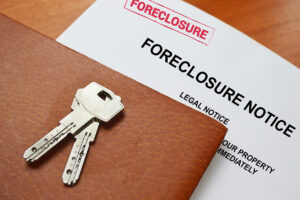 On February 20, 2023 the new Foreclosure Abuse Prevention Act was signed by New York Governor Kathy Hochul. Here are some significant aspects of this new law;
On February 20, 2023 the new Foreclosure Abuse Prevention Act was signed by New York Governor Kathy Hochul. Here are some significant aspects of this new law;
- A motion to discontinue a foreclosure lawsuit will no longer be able to reset the six year statute of limitations to bring a new foreclosure lawsuit. Under this new statute, legal action by the holder of the note. (e.g., the bank) to discontinue the lawsuit does not extend the statute of limitations for bring a foreclosure lawsuit. The holder of the loan is time barred from foreclosing the mortgage after six years from the date the loan was initially accelerated. The new law changes “the election of remedies” law in the State of New York. It now states, once the foreclosure action is barred by the statute of limitations, a loan owner or servicer is prohibited from bringing any other lawsuit to recover the same part of the mortgage debt. This includes preventing the financial institution from bringing another foreclosure lawsuit and/or an action to recover a personal judgment against the borrower on the promissory note.
- In cases where the homeowner brings a quiet title action or in response to a homeowner’s or borrower’s statute of limitations defense in a foreclosure law suit, the statute of limitations still expires even when the lender did not validly accelerate the loan. Under this new law in New York, the loan owner or servicer would be permitted to assert that the acceleration was invalid only if a prior foreclosure action was dismissed based on a court ruling which ruled that the original acceleration of the mortgage is not valid for statute of limitation purposes.
- This new law applies RETROACTIVELY to any foreclosure lawsuit action filed before December 30, 2022, for which a final judgment and order of sale has not been enforced.
Changing Foreclosure Rules
Financial institutions and their attorneys have been getting away with starting foreclosure lawsuits, withdrawing the foreclosure lawsuits, and then starting them all over again and continually renewing the six year statute limitations. Now homeowners have a sword to fight foreclosure lawsuits which they didn’t have in the past!
 The law office of Schlissel DeCorpo have been defending homeowners regarding mortgage issues for more than three decades. They can be reached at 516-561-6645, 718-350-2802, 631-319-8262 and 914-998-0080 or emailed at Elliot@sdnylaw.com.
The law office of Schlissel DeCorpo have been defending homeowners regarding mortgage issues for more than three decades. They can be reached at 516-561-6645, 718-350-2802, 631-319-8262 and 914-998-0080 or emailed at Elliot@sdnylaw.com.
SHOULD YOU HIRE A FORECLOSURE DEFENSE LAWYER?
 If you’re successful in modifying your mortgage on your own, you may not need a foreclosure defense lawyer. But if you’re unsuccessful obtaining a mortgage modification or if a process server shows up at your house and serves you with legal papers, it’s important you hire an experienced foreclosure defense lawyer as soon as possible.
If you’re successful in modifying your mortgage on your own, you may not need a foreclosure defense lawyer. But if you’re unsuccessful obtaining a mortgage modification or if a process server shows up at your house and serves you with legal papers, it’s important you hire an experienced foreclosure defense lawyer as soon as possible.
INTERVIEW THE LAWYER
When you arrive at a foreclosure defense lawyer’s office, you should interview the attorney. You should find out his or her experience level. You should find out if they’ve published articles on foreclosure defense. You should speak to the attorney about how many cases they’ve handled and their success rate. You should look into whether they have appropriate staffing. Some attorneys’ offices are outgunned by the type of law firms hired by the financial institutions to bring foreclosure lawsuits. If you cannot afford to hire a private attorney, you may qualify for legal aid if available to help you defend you and your family in the foreclosure lawsuit.
 The law office of Schlissel DeCorpo have been defending homeowners regarding mortgage issues for more than three decades. They can be reached at 516-561-6645, 718-350-2802, 631-319-8262 and 914-998-0080 or emailed at Elliot@sdnylaw.com.
The law office of Schlissel DeCorpo have been defending homeowners regarding mortgage issues for more than three decades. They can be reached at 516-561-6645, 718-350-2802, 631-319-8262 and 914-998-0080 or emailed at Elliot@sdnylaw.com.


